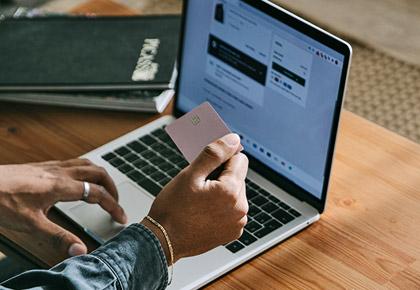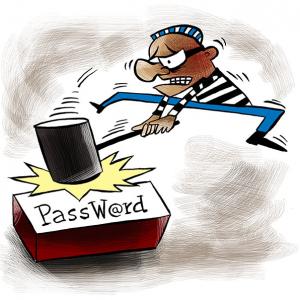Scammers and fraudsters keep coming up with creative ways to gain access to sensitive information and only by being alert and aware of such attempts can data privacy be truly maintained, advises Niranjan Upadhye, general manager, fraud risk management, Worldline India.

Online transactions have crossed all boundaries and reached another level during the pandemic.
We interact with various digital channels and more often than not these interactions happen through the exchange of data.
Whether it is the data exchanged or whether it is the metadata or the data about the interaction, both types of data are extremely important as they contain sensitive information.
And what is equally important is to maintain its safety.
The data being exchanged often contains sensitive information about the user while the metadata if leaked in quantities could be used to formulate personality profiles.
Therefore it is important that we pay attention that actually up to what extent and who can access our data and if accessed how is it being utilised.
Why is data privacy important?
Data is made up of sensitive information that could be misused or manipulated towards malicious means.
If we do not pay attention to the maintenance of our data privacy and do not keep close attention on the security level of the data then it could be stolen and misused.
How does data privacy impact consumers?
Data privacy determines almost every aspect of our lives.
In the era of smartphones every tap is recorded.
In such an environment it is important that we take all the necessary steps to ensure that the access to any kind of data is granted only to verified and trusted sources.
Loss of data could result in significant tangible financial losses, but the intangible repercussions could be much worse.
What happens to compromised data?
There are a few things that could happen in case of a digital security breach:
Ransom ware
Your data stored locally is encrypted and held at ransom for a demand, generally financial in nature.
Rising ransomware cases are now contributing to losses exceeding billions of dollars worldwide.
Corruption of data
This could result in rendering the device useless, thereby causing financial loss.
Fraud
Loss of sensitive information could lead to financial frauds being perpetrated immediately or later.
Nowadays fraudsters are coming up with clever ruses and it’s absolutely crucial to be alert and aware of the ramifications.
Theft of data
These could lead to more complex type of frauds like identity theft, account takeover, opening of credit facilities in your name and exploitation of the same by fraudsters etc.
When such malicious elements are present it is imperative that we take steps to protect ourselves and take adequate precautions, because if it comes to the worst there may not be a remedy for the losses incurred.
In case of an elaborate scam even staying alert and aware may not be enough and often these types of scams have severely malicious intent driving them.
Smart tips to protect data
1. Strong passwords
Setting up strong passwords is a key method and often does most of the job.
Special efforts need to be taken to have a mix of characters, cases and numbers while setting up passwords.
Personal patterns or associations can be utilised to ensure that passwords can easily be remembered.
These patterns must be deeply personal such that it is extremely difficult to guess or to crack.
Password managers aren't suggested because it is never advisable to put all your eggs in a single basket.
2. Secure device
It is imperative to ensure that the device that stores your data is secure, as is the network that the device accesses.
Efforts must be take to stay updated on the patches to the anti-virus protection as well as the firewalls installed.
3. Secure networks
Data in transit can be extremely vulnerable.
When data is in a state of rest there are multiple precautionary measures that can be taken to protect the data but the same cannot be said to the data that is in transit.
Protecting data in transit is complex so it is suggested that data be transmitted through secure and trusted networks only, all along in dual encryption.
4. Privacy settings
Ensure the privacy settings are optimised such that the access to data is provided on a validated need to have basis whether it is programmes or people.
Just like sensitive information must be protected from strangers, access to data must not be granted to unidentified programmes.
5. Back-Ups
Ensure that the data is backed up regularly.
It is suggested that backups be located both at a location on cloud and at a secured physical facility to ensure maximum protection.
It is common sense to back up your back up.
These ways can ensure the protection of your data by raising the security levels and thereby decreasing the probability of a breach.
However, ultimately, it is your alertness and awareness that can actually protect your data against the threat of breach.
Scammers and fraudsters keep coming up with creative ways to gain access to sensitive information and only by being alert and aware of such attempts can data privacy be truly maintained.
So the best way to protect your data is to always double check whether or not any query, or request or any other attempt to gain access to your data is originating from a legitimate source or not.
In case it isn't it is for the best if all such malicious attempts are brought to the notice of the IT administrators and regulatory authorities responsible to oversee the protection of data privacy.










